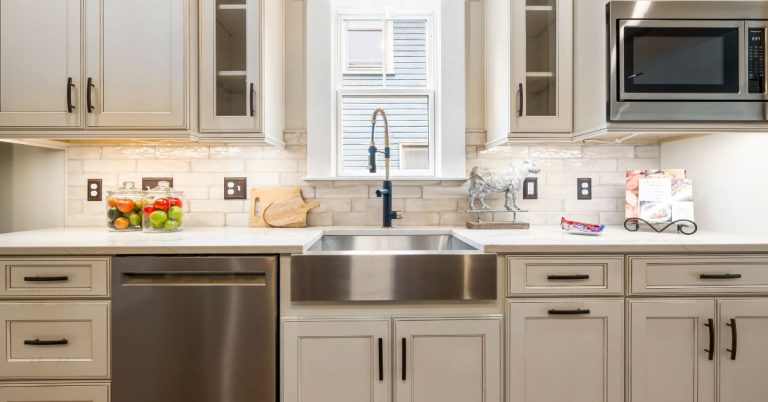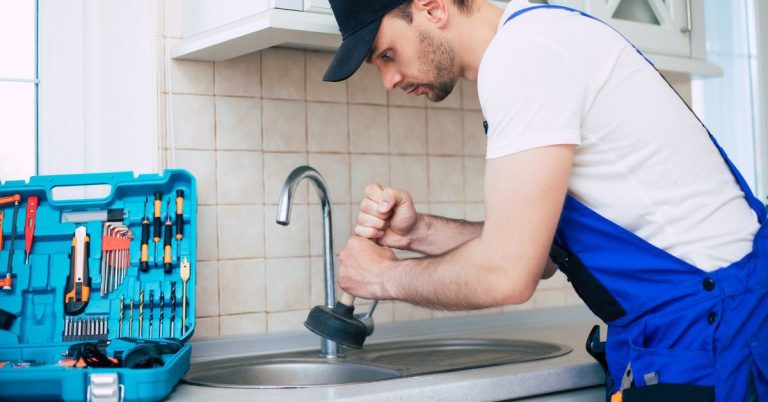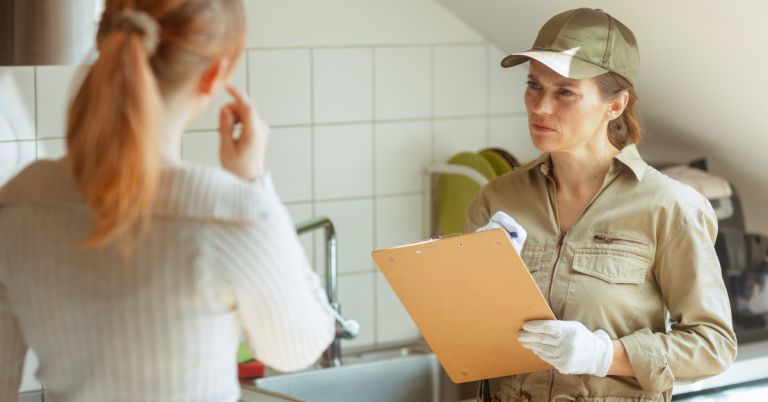Yes, outdated plumbing lowering home value is a real concern, as old pipes can lead to leaks, poor water pressure, and expensive repairs—deterring potential buyers and reducing your home’s market appeal.
Key Takeaways:
- Outdated plumbing can deter buyers.
- It may lead to costly repairs.
- Modern plumbing boosts home value.
- Inspection reports often flag old systems.
When it comes to increasing your home’s market value, few elements are as critically overlooked as the condition of the plumbing system. Whether you’re preparing to sell or planning a long-term investment, ignoring outdated plumbing can severely undermine your property’s value, lead to costly repairs, and deter potential buyers.
In this blog, we uncover the true impact of outdated plumbing, explain how to identify signs of deterioration, and explore cost-effective solutions that can immediately enhance your home’s worth.
Table of Contents
Why Outdated Plumbing is a Silent Value Killer
Buyers today are savvy. During inspections, plumbing issues often raise red flags that can tank a sale or become leverage for negotiating a lower price. Outdated materials, hidden leaks, and low water pressure don’t just cause inconvenience—they signal poor maintenance and future expenses.
1. Old Pipes = Potential Hazards
Homes built before the 1990s commonly contain galvanized steel, lead, or polybutylene pipes—all of which are now known to deteriorate, corrode, or leach contaminants into water supplies. Lead, in particular, poses a serious health hazard when present in drinking water. The Environmental Protection Agency (EPA) outlines how older plumbing materials like lead pipes can contaminate drinking water, posing long-term risks to both health and home safety.
These pipes can cause:
- Lead contamination, a serious health hazard.
- Rust-colored water, which is unsightly and potentially damaging.
- Frequent leaks, leading to structural damage and mold growth.
Modern buyers are increasingly aware of these risks and may walk away from a property that hasn’t upgraded its plumbing.
2. Insurance Issues and Inspection Failures
Insurance companies often refuse coverage or charge higher premiums for homes with certain outdated plumbing systems. According to the U.S. Department of Housing and Urban Development (HUD), all plumbing systems in residential properties should be “functionally adequate, operable, and free of health and safety hazards.” Failing a home inspection due to plumbing issues can:
- Delay closing.
- Result in lost sales.
- Require expensive emergency upgrades.
How to Know if Your Plumbing is Outdated
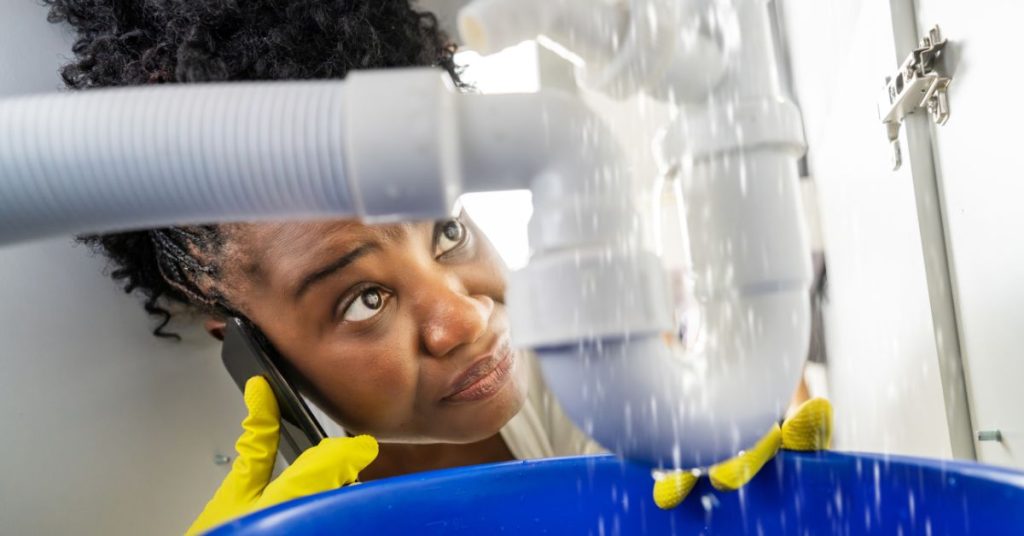
Even if you aren’t seeing visible problems, your plumbing may be quietly costing you value. Here are key warning signs:
A. Frequent Clogs and Leaks
Recurring clogs or leaks are a red flag that your plumbing may be suffering from corrosion or mineral build-up. These issues gradually restrict water flow and weaken pipe integrity. While quick fixes might offer temporary relief, they don’t address the root cause—an aging infrastructure that can lead to bigger, costlier problems and ultimately lower your home’s value if left unaddressed.
B. Discolored or Metallic-Tasting Water
Water that appears brown, yellow, or tastes metallic is a strong sign of pipe corrosion. This not only affects water quality but can also stain laundry and fixtures, creating persistent cosmetic and functional problems. Over time, such signs reduce the home’s desirability to potential buyers, making it essential to identify and address them early to protect your property’s value and appeal.
C. Poor Water Pressure
If your showers or faucets have low pressure, the cause may be narrowing pipe diameters from internal scale or sediment accumulation. This restriction disrupts water flow and impacts the performance of everyday appliances like dishwashers and washing machines. Since buyers often test water pressure during home tours, unresolved issues can become a major drawback when trying to sell your home.
D. Pipe Materials
Check exposed pipes in your basement or utility areas. Common outdated materials include:
- Galvanized Steel – Prone to rust and internal clogs over time.
- Lead – Toxic and banned due to serious health risks.
- Polybutylene – Brittle and likely to fail under pressure.
Replace these materials with modern, durable options like PEX, copper, or PVC to ensure safer water flow, prevent leaks, and improve your plumbing system’s longevity.
Impact of Outdated Plumbing on Property Value
Failing to update plumbing can cost homeowners tens of thousands in lost property value. Here’s how:
1. Lower Appraisal Value
Outdated plumbing can significantly impact how much your home is worth. During evaluations, appraisers assess the condition of critical systems, and old or damaged pipes raise red flags. These issues often lead to a lower appraisal, which limits your asking price and can reduce the amount lenders are willing to finance—affecting both potential sales and refinancing opportunities. Updating your plumbing helps maintain your home’s full financial potential.
Get your water heater repaired or replaced the same day
2. Fewer Offers, Longer Days on Market
Homes with outdated plumbing are a turn-off for many modern buyers, who prefer move-in-ready properties. In a tight real estate market, even small issues can make a big difference. Unappealing plumbing reduces buyer interest, leading to fewer offers and more time on the market. Sellers often end up lowering their asking price or offering incentives to attract buyers willing to take on the necessary repairs.
3. Unexpected Repairs During Escrow
Plumbing issues uncovered during escrow can quickly become deal-breakers. A home inspection might reveal hidden leaks, pipe corrosion, or outdated materials, prompting buyers to request costly fixes.
Common buyer demands include:
- Full replacements.
- Price concessions.
- Repair credits that far exceed actual costs.
These negotiations often delay or even cancel the sale. Addressing plumbing problems before listing helps avoid disruptions and ensures a smoother closing process.
Cost vs. Value: Is Replacing Plumbing Worth It?
While repiping a house can be a significant expense—averaging $4,000 to $15,000 depending on size and materials—the return on investment (ROI) is strong, particularly when selling in a competitive market.
Here’s Why It Pays Off:
- Buyers prefer move-in ready homes.
- Fewer surprises during inspection.
- Higher appraisal values and faster sales.
- Peace of mind with warranties and updated systems.
- Boosts overall home efficiency and water quality.
Modern Plumbing Upgrades That Add Value
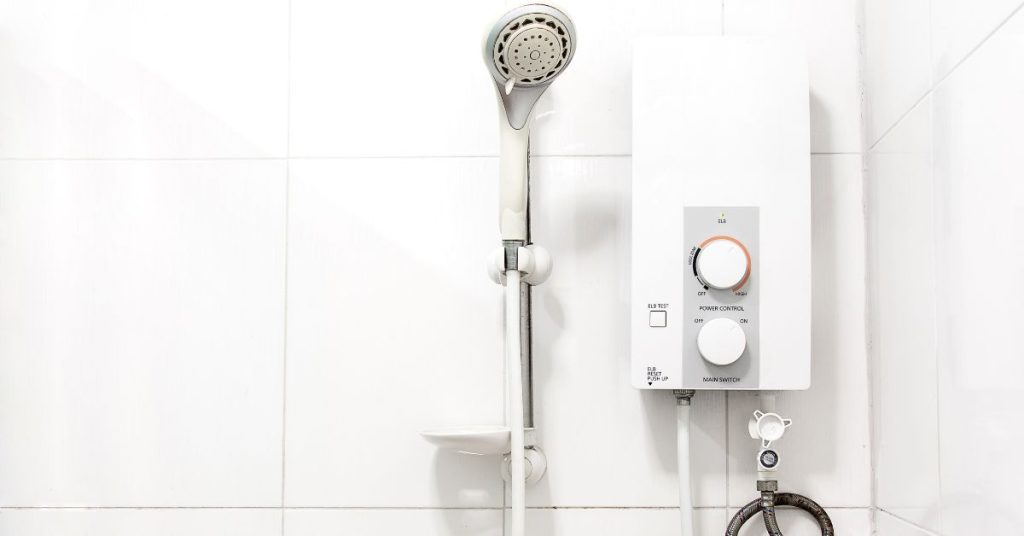
To future-proof your home and boost its value, consider these plumbing upgrades:
A. Whole-Home Repiping
Upgrading your plumbing with home repiping enhances your property’s functionality and resale appeal. By replacing outdated materials with modern PEX or copper, homeowners can enjoy improved water pressure, cleaner water, and reduced risk of leaks or corrosion. This long-term investment not only ensures reliable plumbing performance but also adds significant value to your home by demonstrating proactive maintenance and modern infrastructure.
B. Tankless Water Heaters
A tankless water heater installation offers on-demand hot water, eliminating the need for bulky storage tanks and reducing energy costs. These efficient systems provide endless hot water while using less space—ideal for compact homes or apartments. Additionally, their longevity and eco-friendly operation appeal to energy-conscious buyers, increasing your property’s market value and overall comfort.
C. Water Filtration Systems
Installing whole house water filtration systems ensures every tap delivers clean, safe, and great-tasting water. These systems filter out sediments, chlorine, and contaminants right at the entry point, improving both water quality and appliance lifespan. Homebuyers value this upgrade as it highlights your dedication to health and sustainability, making your property more attractive and future-ready.
D. Smart Leak Detection Systems
A water leak detection system provides real-time monitoring through smart sensors that alert homeowners of leaks before major damage occurs. These Wi-Fi-enabled devices offer peace of mind, help prevent costly repairs, and may even qualify you for insurance discounts. Integrating this technology boosts your home’s safety and modern appeal, making it a valuable and forward-thinking upgrade.
How to Start: Plumbing Inspection and Planning
The first step to understanding the state of your plumbing is a professional inspection from a trusted local plumbing service in Los Angeles like 5 Star Best Plumbing. A licensed plumber can:
- Identify outdated or corroded materials.
- Detect hidden leaks, clogs, or pressure issues.
- Provide detailed replacement estimates and timelines.
After inspection, create a phased repiping plan if full replacement isn’t feasible immediately. Prioritize:
- Areas with recurring plumbing problems.
- Kitchen and bathrooms (high traffic).
- Basements and exterior pipe runs for preventive maintenance.
Book now and check our promotions to start your professional plumbing inspection and keep your Los Angeles home running smoothly.
Conclusion: Don’t Let Outdated Plumbing Drain Your Equity
Outdated plumbing isn’t just an inconvenience—it’s a serious liability that can sabotage your home’s market value, safety, and livability. Investing in a plumbing upgrade doesn’t just protect your home, it makes it more attractive, insurable, and marketable.
Whether you’re planning to sell or simply protect your investment, updating your plumbing is one of the smartest decisions you can make for your property.
For expert inspection and reliable upgrades, Contact us today to get started.
FAQs
How do I know if my plumbing is outdated?
Look for signs like frequent leaks, discolored or metallic-tasting water, and poor water pressure. Checking pipe materials such as galvanized steel, lead, or polybutylene can also indicate outdated plumbing.
Can outdated plumbing affect my home sale?
Yes, outdated plumbing can deter buyers, lower appraisal values, and cause delays during the sale process. It often leads to costly repairs that buyers use to negotiate price reductions.
Is repiping worth the investment?
Repiping can be costly but significantly boosts your home’s value, appraisal, and buyer interest. It also reduces inspection surprises and increases the longevity of your plumbing system.
What plumbing upgrades add the most value?
Whole-home repiping, tankless water heaters, water filtration systems, and smart leak detection devices are popular upgrades. These improvements enhance efficiency, safety, and overall market appeal.
Why choose a trusted local plumbing service like 5 Star Best Plumbing?
A licensed local plumber provides thorough inspections, accurate estimates, and tailored phased repiping plans. Our expertise ensures your plumbing upgrades protect and enhance your home’s value effectively.



